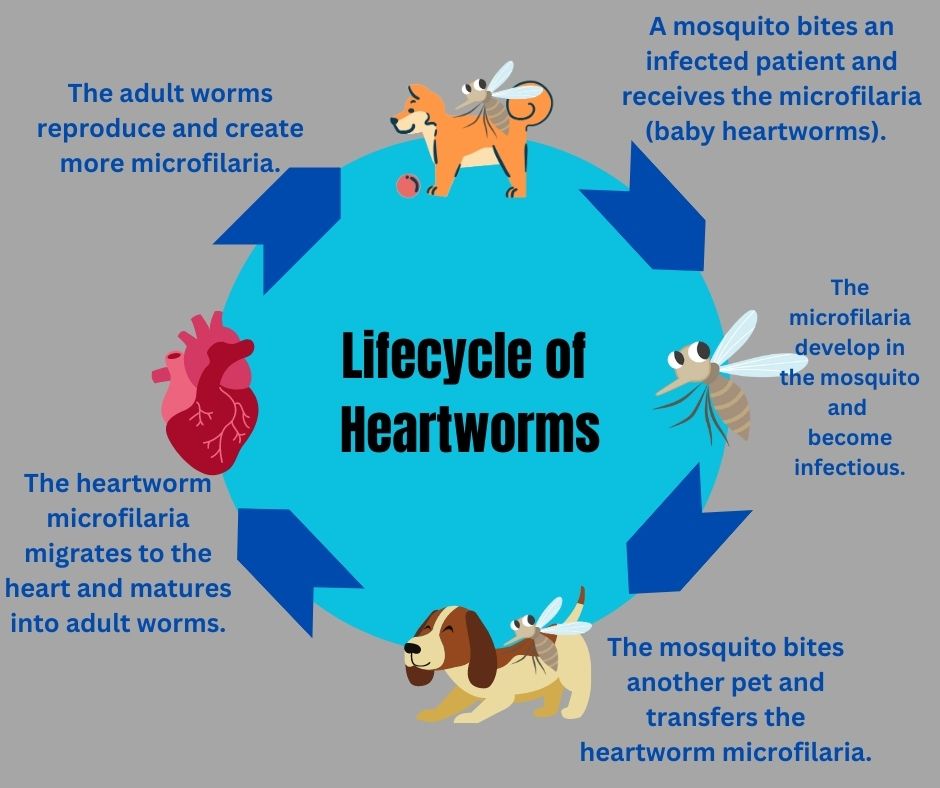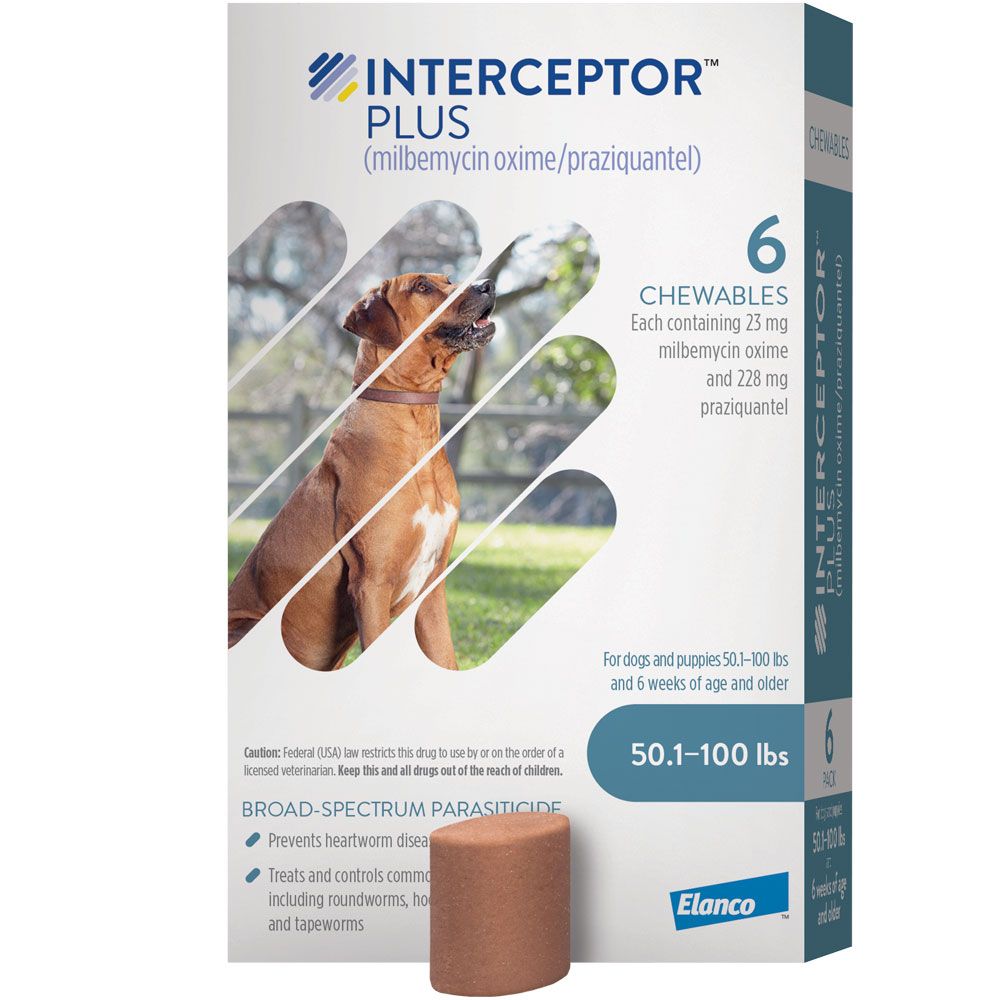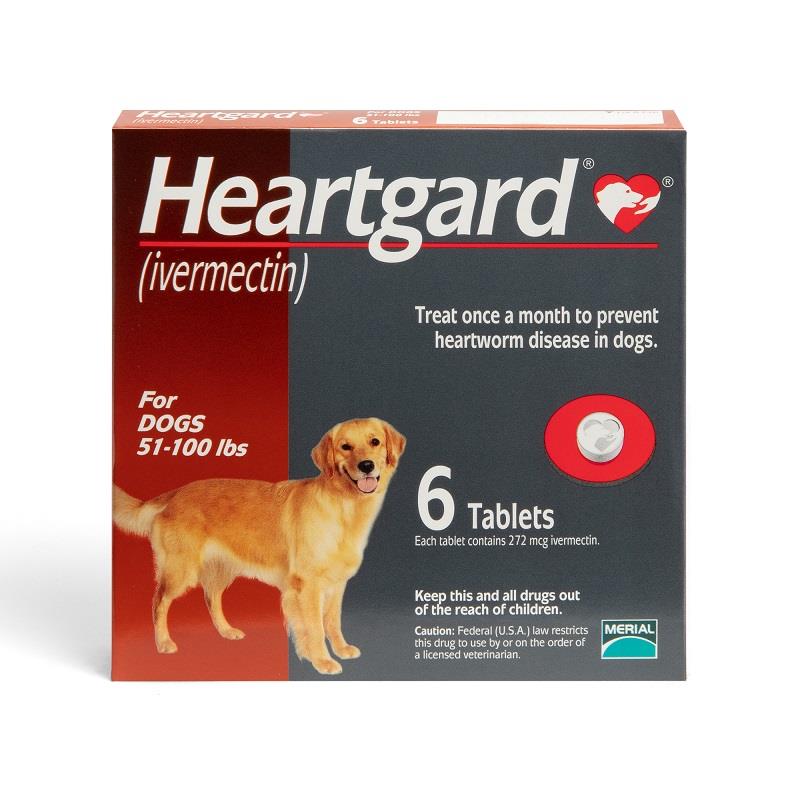
Sick at Heart: The Heartworm Story
Heartworms are long, spaghetti-like worms that reside in the heart, lungs, and blood vessels. Dogs are the natural host for heartworms. This means that they are the ideal environment for the heartworms to reach adulthood, mate, and reproduce.

The Heartworm Life Cycle
Heartworms start as microfilaria (immature worms) that reside in the blood vessels of a host animal (typically a dog).
Then, a mosquito bites the dog and becomes a carrier of the microfilaria. While in the mosquito, the microfilaria continues to develop and becomes infectious.
When the mosquito goes to bite a different animal, it transfers the now infectious microfilaria into that new animal.
The microfilaria can then develop into adult worms. These adult worms are dangerous because they can cause long-lasting and sometimes permanent damage to the heart, lungs, and blood vessels. This can affect the animal long after the original infection has been treated.

Treatment
If your pet has heartworm disease, there is a treatment available; however, the treatment course is long (several months) and requires several medications, strict restricted activity, and regular monitoring to make sure that the adult worms are killed appropriately without causing any problems.
Treatment for heartworm disease can be complicated. That is why prevention is a much better way to fight heartworm disease!
Prevention
There are many types of heartworm prevention ranging from monthly oral medications to an injection that can last 12 months!
All heartworm prevention works by killing the immature heartworm microfilaria. That means they treat any exposure that your pet may have had the month before. Once the immature microfilaria reach the adult stage though, the prevention does not work to kill them. That is why it is important to not miss a dose of heartworm prevention!
In addition to heartworms, many preventions treat and prevent infections with other intestinal parasites! There will be more information on this throughout the month.



Heartworm Testing
At OAH, we perform annual heartworm testing. Our test, called Accuplex, actually tests for four different blood-borne pathogens: heartworms, Borrelia burgdorferi (the bacteria that causes lyme disease), Ehrlichia, and Anaplasma. This test requires a small sample of blood. This test is looking for heartworm antigens – a material on the heartworm that triggers the immune system to respond. If it comes back positive, we always perform a second test to confirm. We look at a blood sample under the microscope to see if we can visualize the microfilaria (immature worms) themselves. If the pet has a positive antigen test, and we find microfilaria under the microscope, then the pet is positive for heartworms. Check out the video below for what microfilaria look like under the microscope!
We often get asked why we require annual heartworm testing if the pet is kept on heartworm prevention all year. This quote from the American Heartworm Society answers that perfectly:
“Annual testing is necessary, even when dogs are on heartworm prevention year-round, to ensure that the prevention program is working. Heartworm medications are highly effective, but dogs can still become infected. If you miss just one dose of a monthly medication—or give it late—it can leave your dog unprotected. Even if you give the medication as recommended, your dog may spit out or vomit a heartworm pill—or rub off a topical medication. Heartworm preventives are highly effective, but not 100 percent effective. If you don’t get your dog tested, you won’t know your dog needs treatment.”
Highlights
- Heartworms are transmitted by mosquitoes.
- Adult heartworms can cause severe damage to the heart, lungs, and blood vessels. This is why it is better to prevent heartworm disease rather than treat it.
- There are several medications out there that can prevent heartworm disease! Ask your veterinarian what the best one is for your pet.
- Annual heartworm testing is important to make sure your pet remains protected.
Now It’s Your Turn
Don’t forget to use this information to fill out your Parasite Bingo card!
